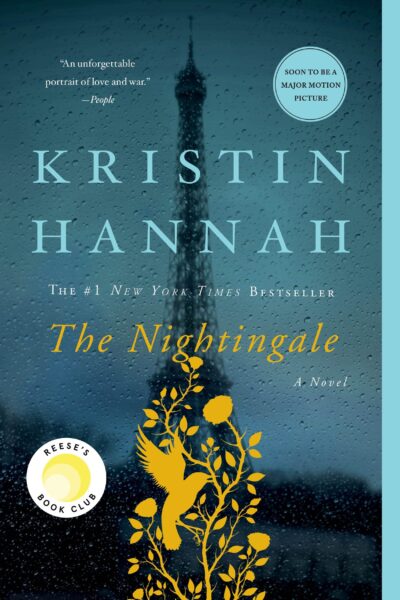Chapter 3: Her and Resilience
byVianne’s early years were shaped not by direct exposure to war, but by its lingering effects on her family, particularly through the transformation of her father after he returned from battle. His emotional distance and inability to reintegrate into family life created a fractured household, a situation that worsened after her mother’s passing. Despite these hardships, resilience became a defining trait for Vianne as she sought solace in her quiet life in Carriveau, building a home with her husband, Antoine, and their daughter, Sophie, believing that they could remain untouched by the turmoil beyond their borders.
The threat of war looms over their small town, disrupting the stability Vianne has worked so hard to build. Antoine’s conscription shatters the illusion of safety, leaving Vianne to grapple with the terrifying uncertainty of life without him. Their farewell is filled with unspoken fears, a moment where love and desperation intertwine as they cling to the hope that France’s defenses, particularly the Maginot Line, will hold back the German invasion.
With Antoine gone, Vianne is left to manage the burdens of everyday life on her own, forcing her to confront a world that suddenly feels much larger and more threatening. Seeking comfort, she visits her best friend, Rachel, whose presence offers a brief reprieve from her mounting anxiety. Together, they share whispered fears and quiet reassurances, both trying to convince themselves that their husbands will return home unharmed, though neither can fully ignore the gnawing doubt in their hearts.
As if the emotional strain were not enough, Antoine’s departure leaves Vianne with the added pressure of managing their household finances, a task she has never handled alone. His decision to withdraw all their money from the bank rattles her, exposing her deepest insecurities about surviving without him. The weight of responsibility settles heavily on her shoulders, pushing her to confront fears she has long ignored—how to navigate a world that suddenly demands more from her than she ever thought possible.
Rachel’s support offers a temporary escape, their conversation laced with both warmth and apprehension, reminding Vianne that she is not alone in her struggles. The friendship between the two women becomes an anchor in the storm, reinforcing the quiet resilience that war forces upon those left behind. Even in the face of growing uncertainty, their shared moments of laughter, mundane conversation, and understanding nods reflect the unspoken strength that binds them together.
As the days stretch on without news from Antoine, Vianne begins to realize that survival is not just about waiting—it is about adaptation. She watches the town around her shift, its people oscillating between denial and grim acceptance, each preparing in their own way for the unknown future ahead. The tension in the air is palpable, a heavy silence that lingers over Carriveau, a reminder that the lives they have built may soon be reshaped by forces beyond their control.
The chapter captures the deep personal impact of war, illustrating how it creeps into the most intimate aspects of life, forcing ordinary people to make extraordinary adjustments. Vianne, once content with her simple existence, finds herself thrust into a position of strength, not by choice, but by necessity. The story of love, loss, and quiet endurance unfolds against the backdrop of impending war, a poignant reflection of how history’s greatest conflicts are often felt most deeply in the smallest, most personal moments.
The final pages of the chapter leave Vianne standing at the precipice of an uncertain future, her heart filled with a mixture of hope and fear. She understands that life as she knew it is slipping away, replaced by something far more fragile and unpredictable. Yet, as she looks at Sophie, she knows she must find the strength to face whatever comes next, even if she must do it alone.


